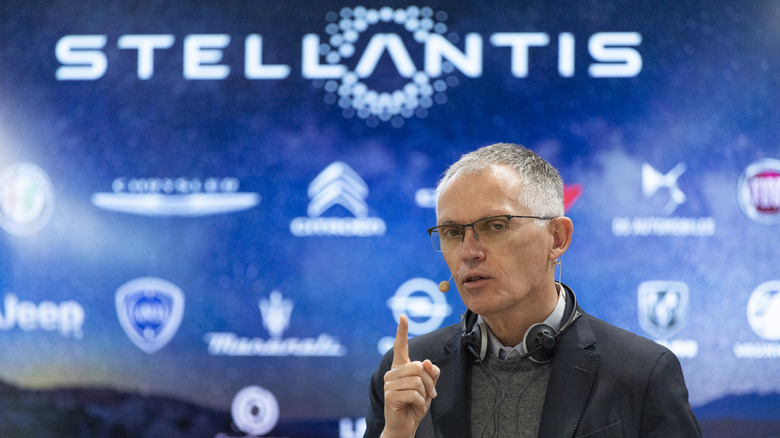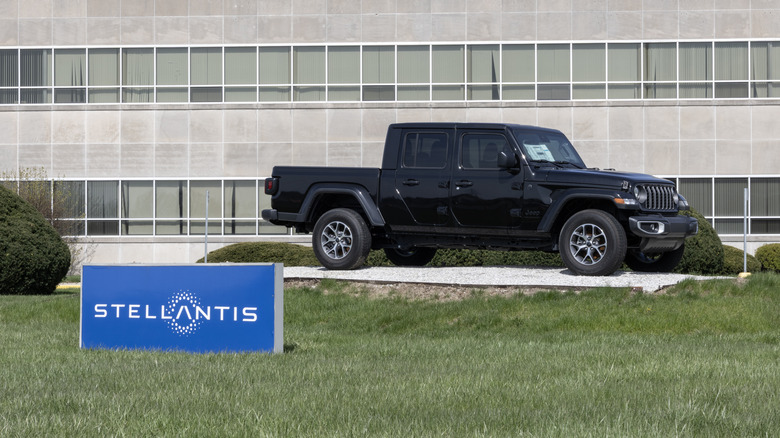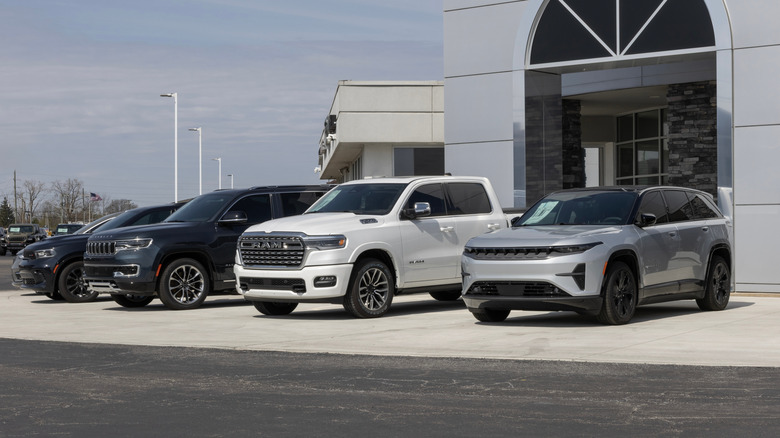Stellantis Could Be Headed For A Messy Corporate Divorce
Ten months after former Stellantis NV CEO Carlos Tavares was forced out of his position for clashing with the board, he has some more controversial opinions about his former employer's future... and the industry at large. In his book, published in Europe last week, Tavares suggests that Stellantis could be heading for a massive corporate split. The reason? Rising tensions between the company's French, Italian, and American operations.
"I am worried that the three-way balance between Italy, France, and the U.S. will break," Tavares writes (per Bloomberg). He feels that the company's fate rests on the shoulders of its new management and its ability to bring everybody under the Stellantis banner back together. (The alternative is the company continuing to be pulled in multiple directions by global stakeholders until it reaches a breaking point.)
All of this is pretty surprising considering the company was only officially formed in 2021. The product of a merger between Italy's Fiat Chrysler Automobiles and France's PSA Group, Stellantis instantly became one of the world's largest carmakers. They own 14 brands in all, including Jeep, Dodge, Fiat, Peugeot, and Maserati. It was once seen as a strength, but, ironically, it's this very size that now seems to be pulling Stellantis apart.
What's been happening at Stellantis post-Tavares
Since Tavares's departure in December 2024, Stellantis's new CEO, Antonio Filosa, has had no easier a time. Profits are still falling, global demand is still disappointing, and global competition continues to heat up. Stellantis has even gone as far as to temporarily close several of its European plants for operating below capacity. The company has also cut back on its plan to invest even more in European manufacturing. Instead, Filosa has pledged to spend $13 billion in the U.S. (which is Stellantis's most profitable market). That's bound to scare labor unions and government officials in France, Italy, and other European countries where there's already enough fear that their nations' auto industries are being left behind.
Tavares (per Bloomberg) argues that, "With me gone, I am not sure that the French interests that I always had at heart — whether you believe it or not — will be as well defended." He has reason to be upset; he was the architect of the Stellantis merger, after all. But instead of helping the company scale faster and more efficiently, the merger has only seemed to cause more conflict and dysfunction.
Why Tavares thinks a breakup could be a good thing
During his time at Stellantis, Tavares made some pretty aggressive cost-cutting efforts and some just as controversial goals. He was trying to boost profits, but he ultimately couldn't keep Stellantis's market share from collapsing. By the time he stepped down at the end of 2024, the company had lost its foothold in nearly every major market. In his book, Tavares sees a future where Stellantis succumbs to the pressure that's been building throughout the 2020s, but he doesn't necessarily see it as a bad thing. Instead, it could allow each division to refocus on its core market (like how General Motors did when it sold Opel and Vauxhall when it left Europe in 2017).
Meanwhile, Chinese automakers like BYD Co. are rapidly expanding in Europe and undercutting Western rivals on both price and efficiency alike. (On the promo tour for his book, Tavares made another bold prediction: that Tesla might even exit the car business within a decade.) Even so, current CEO Antonio Filosa insists that Stellantis's future is in embracing its multinational reach, not backing down from it, unlike the company's Dare Forward 2030 EV plan.


